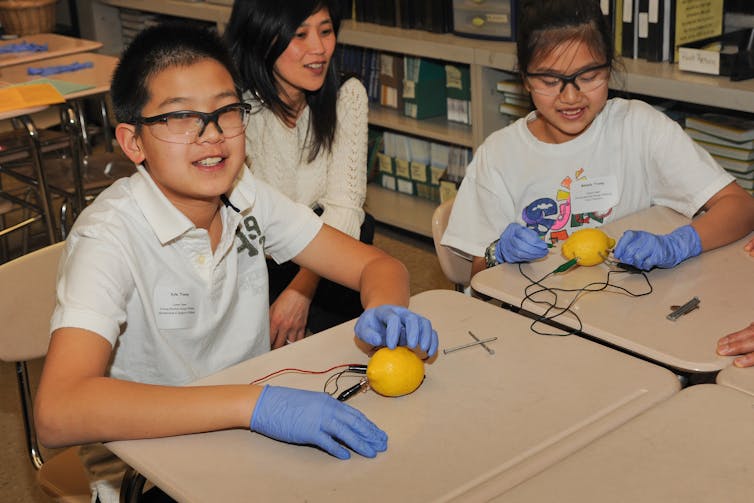A colleague related the following story: while running errands with her 11- and 7-year-old daughters, a back seat battle began to rage. My colleague’s attempts to defuse the situation only led to a shouting match about who was to blame for the skirmish. Finally the 11-year-old proclaimed to her sister, “You started it the day you were born and took away Mom’s love!”
This pair of sisters fight frequently, and from their mother’s perspective, part of the reason is that the two have little in common. As it turns out, their situation is not unique.
Despite the fact that siblings are, on average, 50% genetically similar, are often raised in the same home by the same parents, attend the same schools and have many other shared experiences, siblings are often only as similar to each other as they are to children who are growing up across town or even across the country.
So, what is it that makes two siblings from the same family so different?
What makes the difference?
As researchers of sibling and family relationships, we knew that at least one answer to this question comes from theory and data showing that, at least in some families, siblings try to be different from one another, and seek to establish a unique identity and position in their family.
From a child’s perspective, if an older brother excels at school, it may be easier to attract her parents’ attention and praise by becoming a star athlete than by competing with her brother to get the best grades. In this way, even small differences between siblings can become substantial differences over time.
But parents may also play a role. For instance, when parents notice differences between their children, children may pick up on parents’ perceptions and beliefs about those differences. This, in turn, can increase sibling differences.
We wanted to test these ideas to see what makes siblings different. So, we used data from first- and second-born teenage siblings from 388 two-parent families to examine sibling differences in school performance.
We asked mothers and fathers to report on whether they thought the two siblings differed in their academic abilities, and if so, which sibling was more capable. We also collected school grades from both siblings’ report cards.
Preference for the firstborn
Our analyses showed some interesting results: parents tended to believe that the older sibling was better in school. This was even when older siblings did not actually receive better grades, on average.
This may be a product of parents having greater expectations for firstborns or that, at any given time, the older sibling is undertaking more advanced school work.

There was, however, an exception to this pattern: in families with older brothers and younger sisters, parents rated the younger sibling as being more capable. In fact, in those families, younger sisters received better grades than their older brothers.
Our findings also showed that it was not sibling differences in school grades that predicted parents’ ratings of their children’s abilities. Rather, parents’ beliefs about differences in their children’s abilities predicted later sibling differences in school grades.
In other words, when parents believed one child was more capable than the other, that child’s school grades improved more over time than their sibling’s.
Sustaining beliefs
Although we expected that children’s school grades and parents’ beliefs about their children’s relative abilities would be mutually influential, it turned out that parents’ beliefs did not change much over their children’s teenage years.
Instead, sibling differences in school grades did change, and were predicted by parents’ beliefs. In this way, parents’ beliefs about differences between their children may encourage the development of actual sibling difference.
The above comment by an 11-year-old highlights that children are sensitive to their place and value in the family – relative to those of their siblings. Parents may strive to show their love for their children, but they also should be aware that small differences in how they treat their children can have large effects – including on their children’s development and adjustment, and also on the sibling relationship.
Indeed, some research suggests that sibling conflict arises when children try to be different from their siblings.
My colleague may be correct that her daughters fight frequently because they have nothing in common. But their conflicts may also be motivated by her daughters’ perception that their differences started on the day her sister was born “and took away Mom’s love.”

